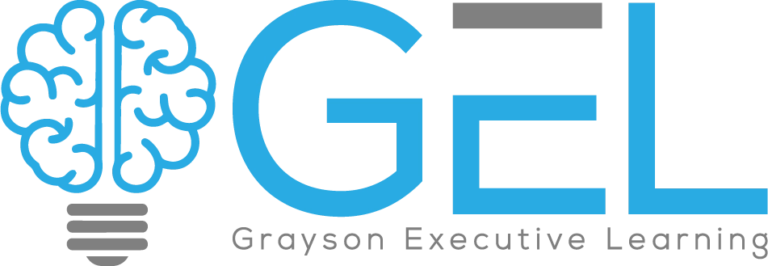As a parent of a teen with ADHD, you have probably heard phrases like “I forgot,” “You never told me that,” or “I was going to do it later” more times than you can count. Memory issues are not just frustrating, they are real challenges rooted in how ADHD affects the brain. These memory lapses can disrupt school performance, family routines, and your teen’s confidence. But understanding why memory struggles happen is the first step toward meaningful support.
In this blog, we will explore how ADHD impacts memory in teens and offer practical, research backed strategies to help your child build skills and regain confidence.
The Science Behind Memory and ADHD
Memory is not a single function. It includes working memory, short term memory, long term memory, and prospective memory (remembering to do things in the future). In teens with ADHD, the most affected type is working memory, the brain’s ability to hold and manipulate information over short periods.
According to a 2020 study published in the Journal of Abnormal Child Psychology, working memory impairments are present in up to 80 percent of children and teens diagnosed with ADHD. These challenges can affect reading comprehension, math problem solving, note taking, and even following multistep instructions.
Neuroscience research shows that individuals with ADHD often experience delayed development in the prefrontal cortex, the part of the brain responsible for executive function, including memory, attention, and planning.
Signs Your Teen Is Struggling With Memory
Memory challenges can show up in different ways, including:
- Frequently forgetting homework or supplies
- Losing track of time or due dates
- Trouble following conversations or instructions
- Forgetting what was just studied or read
- Repeating questions or missing key information
These behaviors are often mistaken for laziness or defiance, but they are rooted in neurological differences. Teens with ADHD are often trying hard, but their brain’s wiring makes consistency difficult without support.
Help Them Externalize Memory Tasks
One of the most effective strategies is helping teens move important information out of their brain and into the external world. Use tools like:
- Whiteboards in their room for daily reminders
- Digital calendars with alerts
- Visual checklists for homework or routines
This reduces the strain on working memory and gives teens a reliable system to lean on.
Use Repetition and Retrieval Practice
Repetition alone is not enough. What works better is active retrieval, the act of recalling information from memory, which strengthens retention. Encourage techniques like:
- Flashcard drills
- Self quizzing after reading
- Reciting steps or concepts out loud
- Teaching the material to someone else
These practices deepen memory connections and are especially helpful for teens who struggle with passive studying.
Make Information Visual and Concrete
ADHD brains often respond better to visual input than to long verbal explanations. Use strategies like:
- Color coded folders or binders
- Diagrams and mind maps for organizing ideas
- Sticky notes with short reminders placed in visible spots
- Timelines or charts to understand concepts chronologically
These tools make abstract information more tangible and easier to remember.
Break Tasks Into Steps With Cues
Memory challenges often affect task initiation and completion. Help your teen break assignments or chores into small steps and add external cues. For example:
- Step 1: Open the text book
- Step 2: Highlight key concepts
- Step 3: Write two summary sentences
Pair this with timers or alarms to keep focus on each stage. These cues reduce the cognitive load on memory.
Build Consistent Routines
Repetition through routines strengthens memory over time. Teens with ADHD benefit from predictable daily rhythms. Build routines around:
- Morning and bedtime habits
- Homework and study time
- Planning and review sessions
According to the CDC, teens with regular routines and structured time are better able to manage ADHD symptoms, including forgetfulness and disorganization.
Support Emotional Regulation
Stress, anxiety, and emotional overwhelm can shut down memory retrieval. Create a supportive environment where mistakes are treated as learning opportunities. Encourage:
- Breaks when frustration rises
- Mindfulness practices or calming activities
- Positive reinforcement for effort, not just outcomes
Helping your teen regulate emotions also helps their brain access and store information more effectively.
Check for Sleep and Nutrition Gaps
Sleep deprivation and poor nutrition significantly affect memory. The National Sleep Foundation recommends 8 to 10 hours of sleep for teens, yet most average less than seven. Ensure your teen is:
- Getting consistent, adequate sleep
- Eating balanced meals with brain friendly foods like fish, nuts, and leafy greens
- Staying hydrated
Physical wellbeing supports brain function and helps memory systems work more smoothly.
Final Thoughts: With Support, Memory Can Improve
Memory challenges are real and frustrating, but they are not a sign of laziness or a lack of potential. With the right tools, routines, and encouragement, teens with ADHD can strengthen their memory skills and become more independent and confident learners.
How Grayson Executive Learning Helps Teens With ADHD
Grayson Executive Learning (GEL) is a boutique Academic and ADHD/Executive Function Coaching practice that specializes in providing premium one-on-one academic coaching services to high school and college students with ADHD and executive function difficulties.
Click here to learn how we can help your student truly reach their academic potential while developing critical life and independence skills.
We look forward to serving you.


